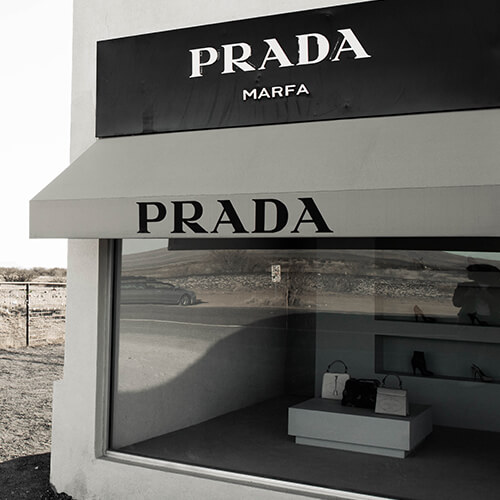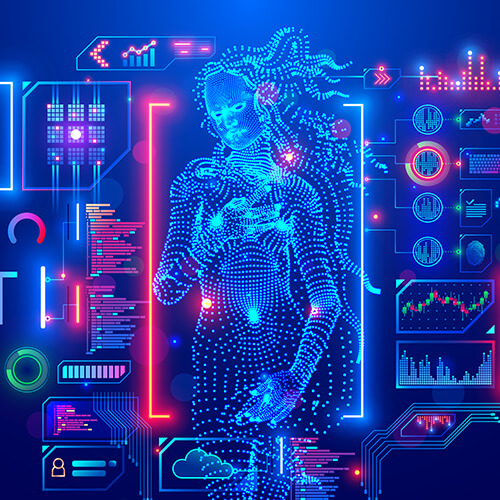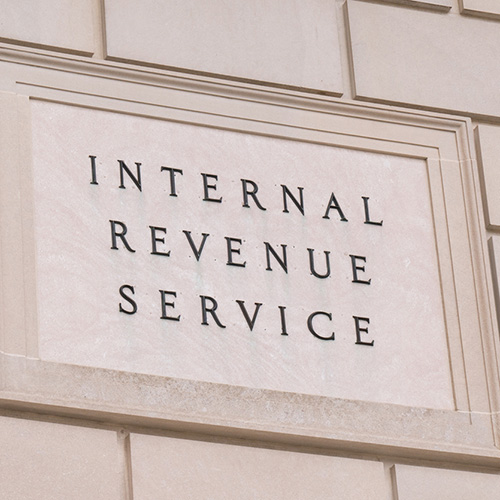
Intro to NFTs
Non. Fungible. Token.
NFT stands for “non-fungible token.” If something is “non-fungible” it means that it can’t be copied or substituted — there is only one of it. It is unique. And “token” refers to a type of digital token, a form of online currency.
Typically, an NFT will be a unique image or video that exists only on the computer. NFTs were initially popularized by artists as a way to promote their own work; however, the form was quickly appropriated by corporations. Burger King, Macy’s, and the NBA are a very small selection of the corporations selling NFTs. But anyone can make an NFT — all you do is save a file in a certain way on your computer, then have your NFT “minted” by a digital register.
Making an NFT is a simple process that begins with saving a digital item as any number of file types, like JPEGs, GIFs, MP3s, and so on. Next, the file needs to be “minted”, meaning that, for a fee, the file is added to a digital register that authenticates ownership. See below for more details.
From there, you can do whatever you want with your NFT. You can try to sell it or trade it on an NFT marketplace or keep it to show off to your friends. It is unique, irreplaceable, and 100% yours. Imagine your child’s piece of art or the original version of Thriller by Michael Jackson - the digital versions of course.
A lot of the current excitement around NFTs today is using the technology to sell authenticated digital art.
NFT Opportunities
The world of NFTs opens up many new opportunities.
Today, artists, athletes and businesses are selling NFTs. Some even for millions of dollars.
These are local artists who can now share their art with the world and get a payment every time someone RE-SELLS their NFT.
People are even donating NFTs to nonprofits to help raise money for charitable events. For example, the Macys Thanksgiving Parade created a NFT with a photo of the event to raise money for the community.
NFT Risks
You will be required to set up a digital wallet to create, buy or sell a NFT and setting up a digital wallet requires a significant amount of personal data - beware!
NFTs don’t always go up in value. Not all are guaranteed successes for sales.
Seek a REPUTABLE NFT marketplace to create, buy or sell a NFT.
Be very aware of “clicking” your keyboard. You could lose all of your investment in NFTs in one click.
Be aware of scams - there are plenty out there!

NFT Key Facts
NFTs are unique, irreplaceable digital items with no inherent value.
A NFT allows its buyer to say that they own the original copy of a digital file.
There are upsides and downsides to investing in NFTs
There are potential financial benefits to creating a NFT IF it becomes popular and traded often and price increases.
NFTs can lose there value with no warning.
NFTs are speculative and can be volatile investments.
Like most things online, they are subject to scams.

Why would you want to own an NFT?
After talking to some friends, here is what I found…In short, they are cool and it’s fun to create and own a NFT. These are unique, irreplaceable, and verifiable digital things.
An NFT essentially allows its buyer to say that they own the original copy of a digital file. The bottom line is - You can sell it, you can tell your friends about it, you can donate it to someone else – there are many ways you can use your new NFT.
One fun thing about NFTs is that they create a community for us. For example, Women of the World or Boss Beauties highlight NFTs from women artists OR MYBFF is a community of women to learn about everything happening with NFTs.
Creating, buying and selling NFTs brings a community together. It’s pretty great. You can interact with people who understand your interests.
How do you create a NFT?
Today we will talk about it from a very high level. To begin the process, we digitize an item with our phones and turn it into a digital JPEG, or a PNG file. Let’s say my nieces’ piece of art.
This sounds complicated but it really just means saving the item a certain way like we save photos today. Next, we have this item minted.
Minting an NFT is the process of taking this file and putting it on a digital register – a designated place online. This process creates a stamp of NFT ownership. After your item has been minted, you own a NFT.

Now what?
Your NFT needs to be placed on a blockchain (a network of computers to manage things). There are multiple NFT marketplaces you can use to buy and sell. Most importantly, do some research and choose a reputable NFT marketplace.
Keep in mind…NFTs are speculative and volatile investments.
People can get scammed through the sale and purchase process so be aware.

NFT Pros and Cons

Pros
NFTs provide a record of authenticity and ownership held and verifiable on the blockchain.
They’ve fashioned a new market to create wealth, with potential high growth potential.
NFTs generate efficiency with (smart) contracts by streamlining processes and eliminating intermediaries.
They can empower a new marketplace for artists, allowing them to sell directly to collectors and receive royalties whenever the art is resold. Think of trading cards. Every time they were traded, they were more desired.
NFTs can potentially add diversification to your financial portfolio, as the economy and companies prepare for what’s next in a post-pandemic world. (That’s of course, only if you have the risk tolerance and liquid cash to invest at all.)

Cons
NFTs are illiquid and speculative investments. Since it is a new asset and marketplace, there is not a lot of historical data to research.
It is a very volatile investment. As with most art, digital or physical, the value of it is relative and based on what someone is willing to pay for it. That’s the “unique” nature of a NFT, which can be viewed as both a pro or a con.
They are not great for the environment. Over time, the effects of producing NFTs, or all types of cryptocurrency, can have a tremendous negative long-term effect on our environment.
There is a potential for fraud and scammers within the space. Despite the blockchain, NFTs are currently able to be hacked and stolen, which adds another big risk to consider.
NFT 2.0: The next generation of NFTs will be streamlined and trustworthy
Coin Telegraph - The future of money






